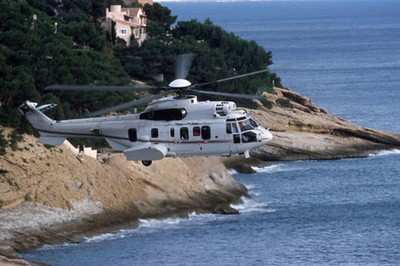Thu, Jun 14, 2007
Forms In-House Directorate
To demonstrate what the company calls "its commitment to giving
flight safety the highest priority," Eurocopter recently created an
in-house flight safety directorate, headed by Jean-Pierre Dedieu,
Executive Director of Customer Support, who reports directly to the
Eurocopter CEO.

Eurocopter representatives tell ANN the directorate is based on
three main areas and tasked with initiating, coordinating and
harmonizing all company actions related to flight safety.
"The Flight Safety directorate was created in response to a
worldwide dynamic," said Dedieu. "As with the airline companies a
few years back, there has recently been increased awareness among
international aeronautical authorities, helicopter operators and
manufacturers of the need to improve flight safety. The helicopter
community has now decided to take concerted action to drastically
reduce the incidence of fatal accidents over the next decade."

The directorate will focus on three areas:
- Technical & Maintenance sector: Initiates
action plans following accidents attributed to technical causes.
No. 1 priority is to reduce time between the accident analysis
phase and the effective fleet-wide implementation of all technical
modifications, as soon as each modification is deemed
necessary.
- Operations sector: Responsible for improving
Eurocopter understanding of operational accidents and facilitating
solution development. Particular emphasis will be placed on:
-
- proposing special training to pilots in accessible locations
and at competitive rates, as per the Group training policy, with
the aim of minimizing accidents attributed to crew errors.
- providing operators with equipment such as flight recorders and
obstacle detectors; discouraging pilots from performing dangerous
maneuvers, and improving flight control aids.
- Corporate Affairs sector: Four major
objectives:
-
- identify, coordinate, and develop action plans so that
Eurocopter and its employees can manage the consequences of
helicopter accidents in an appropriate manner.
- implement a more structured crisis management process.
- improve communication with international authorities such as
the International Helicopter Safety Team (IHST).
- encourage operators to do their part in improving flight safety
by fitting helicopters with operational equipment such as obstacle
detectors, and increasing survivability; ensure maintenance is
carried out in Eurocopter-approved workshops with original parts;
improve training for crew and maintenance personnel (which could
possibly reduce insurance premiums for operators).
More News
He Attempted To Restart The Engine Three Times. On The Third Restart Attempt, He Noticed That Flames Were Coming Out From The Right Wing Near The Fuel Cap Analysis: The pilot repor>[...]
Make Sure You NEVER Miss A New Story From Aero-News Network Do you ever feel like you never see posts from a certain person or page on Facebook or Instagram? Here’s how you c>[...]
From 2009 (YouTube Edition): Leading Air Show Performers Give Their Best Advice for Newcomers On December 6th through December 9th, the Paris Las Vegas Hotel hosted over 1,500 air >[...]
Aero Linx: NASA ASRS ASRS captures confidential reports, analyzes the resulting aviation safety data, and disseminates vital information to the aviation community. The ASRS is an i>[...]
“For our inaugural Pylon Racing Seminar in Roswell, we were thrilled to certify 60 pilots across our six closed-course pylon race classes. Not only did this year’s PRS >[...]
 NTSB Final Report: Rutan Long-EZ
NTSB Final Report: Rutan Long-EZ ANN FAQ: Turn On Post Notifications
ANN FAQ: Turn On Post Notifications Classic Aero-TV: ICAS Perspectives - Advice for New Air Show Performers
Classic Aero-TV: ICAS Perspectives - Advice for New Air Show Performers ANN's Daily Aero-Linx (06.28.25)
ANN's Daily Aero-Linx (06.28.25) Aero-News: Quote of the Day (06.28.25)
Aero-News: Quote of the Day (06.28.25)




